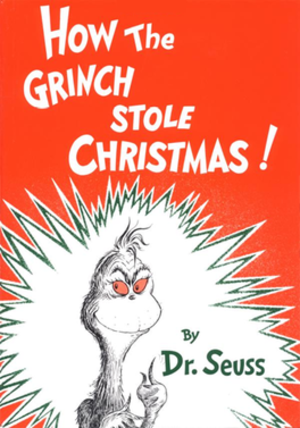or Guns, Grinch, and Faith
My wife loves that her two favorite Christmas specials are also our daughter’s. She loves A Charlie Brown Christmas and How the Grinch Stole Christmas, and it isn’t really Christmas until we’ve watched them both. And now, watched them at least a half dozen times each.
A few weeks ago, I heard a story about Charles Schultz and the making of the Charlie Brown special. He had written in the now familiar climax in which Charlie Brown exasperatingly shouts
“Doesn’t anybody know what Christmas is really about?”
and Linus begins reciting the birth narrative found in Luke 2.
Apparently Schultz’s collaborators were uncomfortable with using such a direct reference to scripture, that they discouraged him from using it, but Schultz insisted.
This is certainly an interesting story, particularly to those that want to keep track of overt displays of Christian speech.
Of the two specials, however, Grinch is a much more radically Christian and disturbingly provocative choice.

Though Dr. Seuss’s story makes no Christian claims or references to Jesus, the Christ child, or the nativity, it displays a much greater example of Christian community than the Peanuts gang. As we learn at the beginning of the story, all of the Whos down in Whoville prepare for Christmas by decorating and wrapping presents. Then they get together for a great big feast and a great Christmas sing! Everybody in town gathers at one table and shares in a great meal and they sing. Everybody, the tall and the small.
This, of course, is the set-up for the Grinch, as he plans to steal, not just their Christmas, but their joy. His intention is to violate them by sneaking into their homes, stealing all Christmas elements and anything they can use to celebrate, including all of their food.
So what happens when the people discover they have been violated? They gather and sing anyway!
No punishment.
No hunt to find the Grinch to try him and execute the vandal.
No arming of Cindy Lou Who to prevent further victimization.
They sing.
As if that weren’t enough, we have that moment, brushed off by millions of viewers as simply “the magic of Christmas,” and not the work of the Holy Spirit, but the Grinch, in hearing the singing is transformed. He returns all of the Christmas stuff and then what happens? They feast.
Is the Grinch not transformed by the Spirit? Does he not repent, turn from his wicked ways, and return to the table, helping prepare the feast?
In light of a season darkened by the tragedy of the Sandy Hook shooting, Grinchy behavior in Washington around the future of our economy in the so-called “fiscal cliff” negotiations, and the annual abandonment of Christmas on the 26th, like the countless trees tossed to the curb, I can think of no story more important than this for our understanding of what Christmas is actually about. Not the birth of a baby or the pastoral remembrances of years gone by, but the living out of Christian community in the midst of tragedy. Of being moved to be different than the world.
The trouble we have each year is that rather than take the example of the Whos, we take on the mantle of the Grinch instead. We shop and wage a war against Advent and shove the poor out of sight. Or perhaps into sight on one day so that we can feel good feeding or clothing them.

Real Christian community sees tragedy as an opportunity to praise GOD. That the “reason for the season” isn’t “Jesus” like the answer on some test, but in actually praising GOD. That putting Christ into Christmas means actually embodying the love of Christ during Christmas, rather than worry about hearing a story about Him or being wished “Merry Christmas” by an underpaid store clerk.
With all of the things we need to work on in 2013, may we make our love and praise in embodying Christian community be the way we make that happen. May we respond to our current tragedies and the evils in our society with love and hope, rather than suspicion and fear. And may we be changed this season, that we might come to appreciate that the love of Christ is so much more important than our stuff—in our homes and our minds.
Leave a Reply